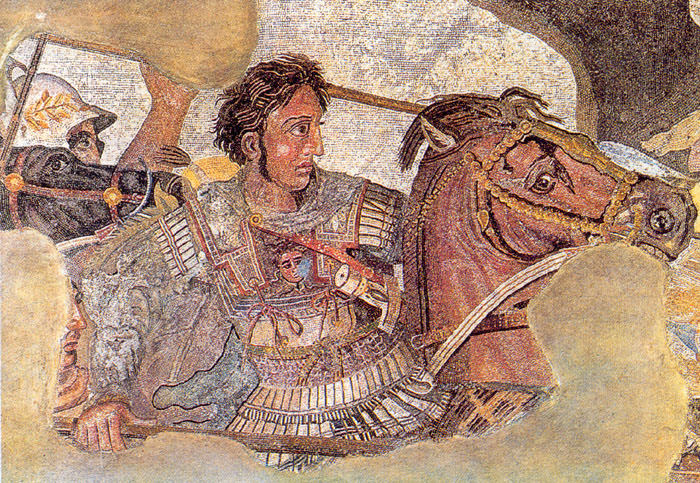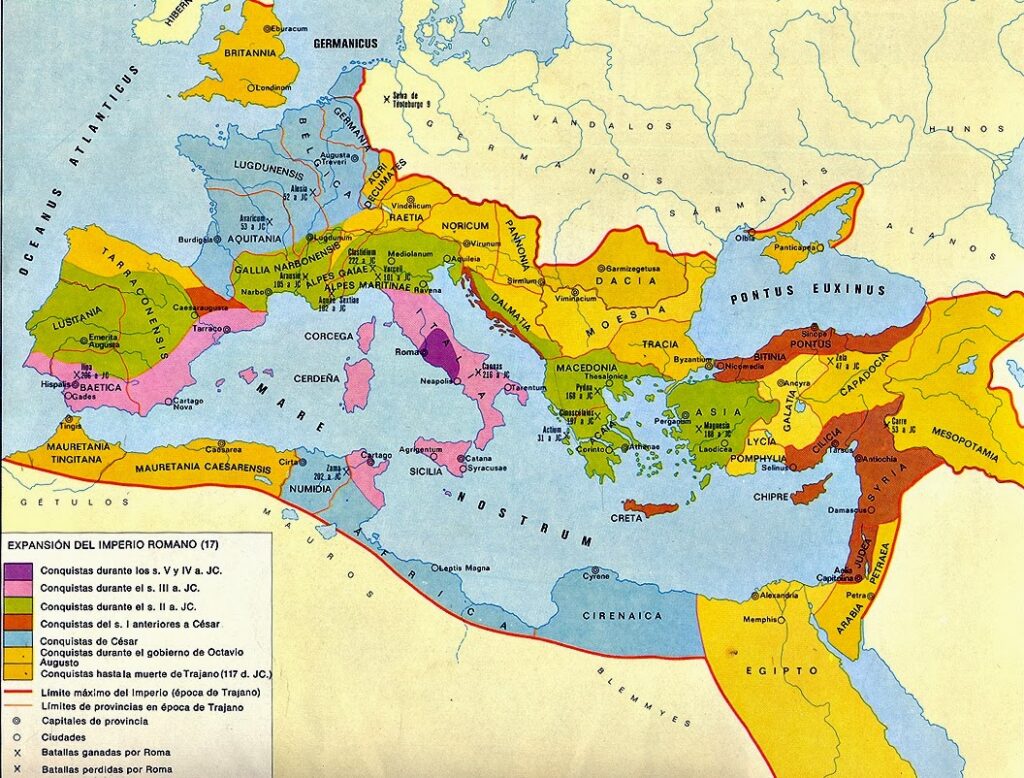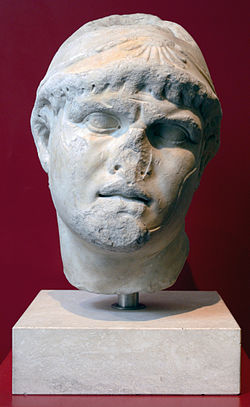The people of Scotasa faced constant bad weather and empty streets as larger forces gathered near their city. Life was unsettled, with children playing at being heroes like Alexander the Great, unaware of the real battles coming close to home. These were tense days in a region shaped by past conquests and rising threats.
After Alexander’s death, his once vast empire broke apart, leading to constant rivalry and shifting alliances. New powers rose in the Mediterranean, with Rome and Macedon nearing conflict as both expanded their reach. Diplomatic efforts failed, setting the stage for a war that would shape the future of Greece and the wider region.
Key Takeaways
- Regional conflicts and alliances set the stage for larger wars.
- The legacy of Alexander created rivalry and shifting power in the area.
- Rome’s growing influence led to direct intervention against Macedon.
Setting the Scene: Scotasa in Distress
Strange Skies Over Thessal
Heavy rain and thick fog covered Scotasa. This weather was rare for Thessal. The main square and markets were empty. Shops stayed shut while people kept indoors. The air was quiet, broken only by the sound of rain hitting rooftops.
| Weather Condition | Usual for Season? | Effect on Town |
|---|---|---|
| Rain | No | Emptied streets |
| Fog | No | Closed marketplaces |
Youngsters Reliving Old Tales
In the empty amphitheater, children played on the stage. They wore hats with feathers and carried wooden swords. Their voices echoed as they pretended to be Alexander the Great. Even in gloomy weather, they tried to bring history to life.
- Wooden swords and feathered hats
- Games modeled after famous battles
- Stories inspired by Greek heroes
Forces on the Horizon: Signs of Approaching Conflict
Sudden tremors shook the ground beneath Scotasa. The quiet was replaced by distant rumbling. To the east, the armies of Philip of Macedon and Flaminius drew near. Residents braced for an upcoming battle that could change their town forever.
| Event | What Happened | Impact |
|---|---|---|
| Ground tremors | Felt in town | Warning of large armies approaching |
| Armies approaching | East of town | Set the stage for major conflict |
Remembering Alexander: His Ongoing Impact
Victories Over the Persian Kingdom
Alexander of Macedon led an epic campaign against the Persian Empire. He captured the whole empire in only a few years while still young. His actions marked a powerful shift in the balance of power. No other Greek leader had come so far or achieved such total victory in Persia and even reached as far as India.
Key Effects of Alexander’s Conquests:
- Ended Persian rule across vast lands
- Expanded Macedonian territory to its greatest size
- Inspired future leaders who tried to copy his military style
The Mixing and Movement of Greek Ideas
After Alexander’s death, his generals created new Greek-led kingdoms in places like Egypt, Persia, and Asia Minor. Cities built or influenced by Greeks became centers of trade and culture. Greek became a common language for learning and ruling through many regions.
| Aspect | Example Regions |
|---|---|
| Language | Middle East, Central Asia |
| Art and buildings | Egypt (Alexandria), Asia Minor |
| Daily customs | Local traditions mixed with Greek |
This spread of Greek culture, often called Hellenistic, helped shape life across the Mediterranean and even touched early Rome.
The Rise of Greek Thinking
Alexander was taught by Aristotle, one of the most famous Greek philosophers. Aristotle learned from Plato, who was a student of Socrates. Their ideas about knowledge, ruling, and how to live became major influences.
Greek Thinkers Linked to Alexander:
- Socrates → Plato → Aristotle → Alexander the Great
The ways of thinking that Alexander learned were carried into the new lands he conquered. Greek philosophy continued to impact later civilizations, including the growing Roman world, who saw value in these teachings and built on them.
Breaking Apart After Alexander: The End of a United Macedon

Power Fights Between Alexander’s Leaders
Alexander the Great died suddenly at the age of 32. His early death created a power vacuum in the huge lands he had conquered. His top military commanders, also called the Diadochi, soon started fighting with each other for control.
Key Points:
- Each general wanted a piece of the empire.
- Many tried to rule over the same lands.
- These conflicts led to years of wars and shifting alliances.
| General | Claimed Region | Outcome |
|---|---|---|
| Ptolemy | Egypt | Kept control |
| Seleucus | Persia & Asia Minor | Kept control |
| Antigonus | Macedonia & Greece | Fought others |
| Lysimachus | Thrace & Asia Minor | Lost power |
The Rise of New Greek Royal Families
After the wars between Alexander’s generals, his once united empire was split. Each general set up their own ruling family in the lands they took over.
- In Egypt, the Ptolemaic dynasty began ruling from Alexandria.
- In Asia Minor and Persia, the Seleucid dynasty took control.
- In Greece and Macedonia, other dynasties tried to keep power but faced new rivals.
The old Macedonian empire had now become several smaller, competing kingdoms, each with their own royal family. These new states were often at odds and sometimes allied with outside powers, like Rome or local Greek cities, for advantage. This constant rivalry shaped politics and warfare across the region for centuries.
Expansion of Rome and Its Mediterranean Role
Rome’s Power Surge After Major Wars
After the wars with Carthage, Rome grew much stronger and became the main power in Italy. Its victory in these wars helped them control new territories. As Rome increased its influence, it began to look beyond its borders for new rivals and challenges.
Some key changes after these wars included:
- Gaining control of most of the Italian peninsula
- Emerging as a serious threat to other Mediterranean kingdoms
- Developing a stronger and more experienced army
These factors set the stage for Rome’s next moves around the Mediterranean.
Contacts Between Rome and Greek Settlements
Long before Rome’s expansion into Greece, Greek cities had already set up colonies all along the Mediterranean, including the shores of Italy. These early contacts brought Greeks and Romans face to face, especially in trade, local politics, and even in cultural life.
Main points of interaction included:
- Greek colonies brought new ideas, language, and art
- Roman society started to absorb Greek customs and learning
- The influence grew even larger as Rome soon became involved in Greek affairs
Greek and Roman connections increased sharply as Rome’s power began to grow throughout the region.

How Hellenistic Traditions Reached Rome
Greek and Hellenistic ways spread to Rome in many forms. Greek teachers, philosophers, and artists traveled to Italy. Rome looked to Greek thinkers like Aristotle and Plato as models. The Romans admired Greek achievements in architecture, philosophy, and government.
| Greek Achievement | Roman Adoption |
|---|---|
| Philosophy | Roman leaders studied Greek ideals |
| Architecture | Buildings in Rome copied Greek styles |
| Language & Literature | Romans translated Greek works |
Roman leaders used Greek ideas to shape their own culture. Through wars and alliances in Greece, Hellenistic influence became a regular part of Roman daily life.
How the Macedonian Wars Began
Rome, Carthage, and the Start of Conflict
For centuries, Greek culture shaped the Mediterranean through colonies and ideas, reaching even the early Romans. At first, Rome was just one power among many. But after fifty years of growth, Rome controlled almost all of Italy and started clashing with Carthage.
Timeline of Early Events
| Year | Event |
|---|---|
| 323 BC | Alexander the Great dies |
| 218–201 BC | Second Punic War: Rome vs. Carthage |
| 216 BC | Battle of Cannae, Hannibal defeats Rome |
| 215 BC | Philip V of Macedon allies with Hannibal |
Philip V of Macedon saw Hannibal defeat the Romans and decided to support Carthage. His move led to the first war between Macedonia and Rome in 215 BC. Rome responded with an alliance of Greek states and ended the war in 205 BC after both sides agreed to peace.
Philip V’s Goals and Growing Tensions
After peace was reached, Philip V wasn’t finished with his plans. He made deals with other rulers, such as Antiochus of the Seleucid Empire, to divide new territories. Philip began to attack cities in Asia Minor and supported raids in southern Greece.
Philip V’s Expansion Steps
- Made pacts for new lands with neighboring rulers.
- Attacked and took cities in Asia Minor.
- Supported raids against Athens and other Greek states.
Neighboring states, feeling threatened, asked Rome for help. At first, Rome hesitated because of war fatigue, but strong warnings about Macedon’s growing power changed their minds. Rome demanded Philip stop his attacks and meet with their allies to make peace. Philip refused, which pushed Rome into the second Macedonian War.
Rome now aimed to stop Philip’s plans and make themselves friends to the Greeks. Philip underestimated Rome’s willingness to fight, which became a key reason for the next war.
Events Leading Up to the Second Macedonian War
Rising Strains in the Eastern Mediterranean
Shifting alliances and uneasy peace marked this period around the Eastern Mediterranean. After the death of Alexander the Great, his generals set up different kingdoms in the region. These new rulers often competed for power, and their actions made tensions worse among the Greek states and neighboring lands.
A century after Alexander’s era, the balance of power kept changing. Macedon, under Philip V, was now seeking ways to grow its influence, increasing fears among its neighbors. The mood was unsettled, with several states watching Macedon’s ambitions carefully.
Philip V’s Military Actions in Asia Minor
Philip V set out to expand his kingdom’s reach. In 201 BC, he moved his troops into Asia Minor, attacking and capturing important places, including the city of Samos and others nearby. His victories made local rulers nervous and showed that Macedon was becoming more aggressive outside its borders.
Philip’s advances were not just military—they also threatened local economics and political balances. His attacks risked upsetting both large and small kingdoms, brewing more resentment and rivalry across the region.
Help Requested by the Leaders of Pergamon and Rhodes
The kingdoms of Pergamon and Rhodes grew concerned over Macedon’s recent campaign. Seeing Philip as a threat, their leaders sought help from Rome, which had just defeated Carthage and was seen as a rising force.
Key Actions:
- Appeals sent by both Pergamon and Rhodes to Roman officials
- King Attalus I of Pergamon traveled to Athens with Rhodian representatives
- These leaders encouraged Athens to join in declaring war on Macedon
Their joint efforts highlighted how worried smaller states were about their safety. By reaching out to Rome, they hoped to even the odds against Philip V’s expansion.
Why Rome Chose to Get Involved
At first, the Roman assembly was not eager to fight another war, as Rome was still recovering from years of fighting Carthage.
Key Points:
- Most Roman leaders resisted at first due to war weariness and local problems
- A Roman consul, Publius Sulpicius Galba, compared Macedon to earlier threats, which persuaded others to act
- Rome attempted a diplomatic solution, sending Marcus Lepidus to meet Philip V and urge a stop to further attacks
Talks failed, and Philip’s stubbornness led Rome to declare war. For Rome, the main goals were to put an end to Macedonian expansion and strengthen ties with the Greek states. They hoped both to stop Philip and to be seen as defenders of Greek freedom.

Diplomacy and the Path to War
Talks Collapse at Abidos
Negotiations between Rome and Macedon took place during the siege of Abidos. Marcus Lepidus, a Roman ambassador, met with King Philip to try to stop further hostilities. He asked Philip to avoid attacking more cities and to make peace with the states of Rhodes and Pergamon.
The conversation quickly turned tense. Philip was irritated by Rome’s demands and claimed not to have broken any agreements from the previous peace. The meeting felt more like a debate over definitions than real progress toward peace. In the end, the talks fell apart, and Philip refused to give in to Roman requests.
Summary Table: Roman Demands at Abidos
| Demand | Philip’s Response |
|---|---|
| Halt attacks on more cities | Rejected; denied fault |
| Meet with Rhodes and Pergamon | Refused |
| Respect existing peace terms | Insisted compliance |
Philip Loses Key Support
Philip’s relationships with other rulers were also under pressure. Earlier, he had joined forces with Antiochus the Great, but circumstances soon changed. While Philip continued to campaign in Asia Minor, Antiochus shifted his focus elsewhere after reaching an agreement with Rome.
Once Antiochus stopped supporting Macedon, Philip was left more isolated. The power shift made it harder for Philip to keep his earlier gains. The loss of this alliance gave Rome more confidence to oppose Macedon and encouraged Greek states to side against Philip.
Alliance Breakdown Effects:
- Philip was without his main partner
- Rome’s position became stronger
- Greek states felt safer seeking Roman support
Goals and Methods of Rome and Macedon
Roman Goals and Approach
Limit Macedonian Power:
Rome wanted to stop Philip V’s territorial ambitions and keep Macedon from threatening other states.Support Greek Allies:
The Romans acted as protectors. They aimed to win the support of Greek states by presenting themselves as defenders of their freedom.Long-Term Strategy:
Rome used diplomacy first, urging Philip to back off and even sent Marcus Lepidus to meet Philip directly. When that failed, they decided on military action to weaken Macedon and force it into submission.
| Roman Priority | Description |
|---|---|
| Crush Philip’s Ambitions | Force Macedon to stop expansion |
| Win Greek Support | Gain alliances and legitimacy in the region |
| Peaceful Solution First | Attempt negotiation before war starts |
Philip V’s Errors and Overconfidence
Underestimating Rome:
Philip V did not anticipate how seriously Rome would take his actions. He saw Rome as tired from recent wars and likely to avoid new conflicts.Ignoring Warnings:
When Rome sent ambassadors and demanded peace, Philip argued over the details instead of looking for compromise.Misreading the Region:
Philip believed he could expand without major resistance. He did not expect Rome to get strong support or Antigonus to accept Roman terms.
Changing Power in the Area
Regional Rivalries:
After Alexander the Great’s empire fell, new kingdoms formed and often competed with each other. This created an unstable environment, making it easier for Rome to get involved.Greek States Seek Help:
Concerned by Philip’s campaigns, Greek cities like Pergamon and Rhodes turned to Rome for support. These requests gave Rome a reason to interfere directly.Rome Becomes a Key Player:
As Macedon’s influence started to look dangerous, Rome used alliances and military presence to shape the future of the region. The result shifted the balance of power away from Macedon and towards Roman control.
Final Thoughts
| Event | Year | Details |
|---|---|---|
| Alexander’s Death | 323 BC | Empire split as generals fought for control |
| First Macedonian War | 215 BC | Philip V supported Hannibal, triggering conflict with Rome |
| End of First Macedonian War | 205 BC | Peace negotiated after anti-Macedonian coalition formed |
| Second Macedonian War begins | 200 BC | Philip’s expansion alarmed surrounding kingdoms and Rome |
- Greek culture and ideas spread through the Mediterranean due to conquests.
- Phillip V’s actions and ambitions increased tensions with Rome.
- Roman influence grew after defeating Carthage and getting involved in Greek affairs.
- Alliances shifted as kingdoms responded to military threats.
Key Figures:
- Alexander the Great: Conqueror and cultural influencer.
- Philip V of Macedon: Sought territorial expansion.
- Rome: Emerging as a dominant Mediterranean power.
- Antiocus the Great and King Adalus I: Key political actors during conflicts.
The stage was set for further confrontations and changes in power.
